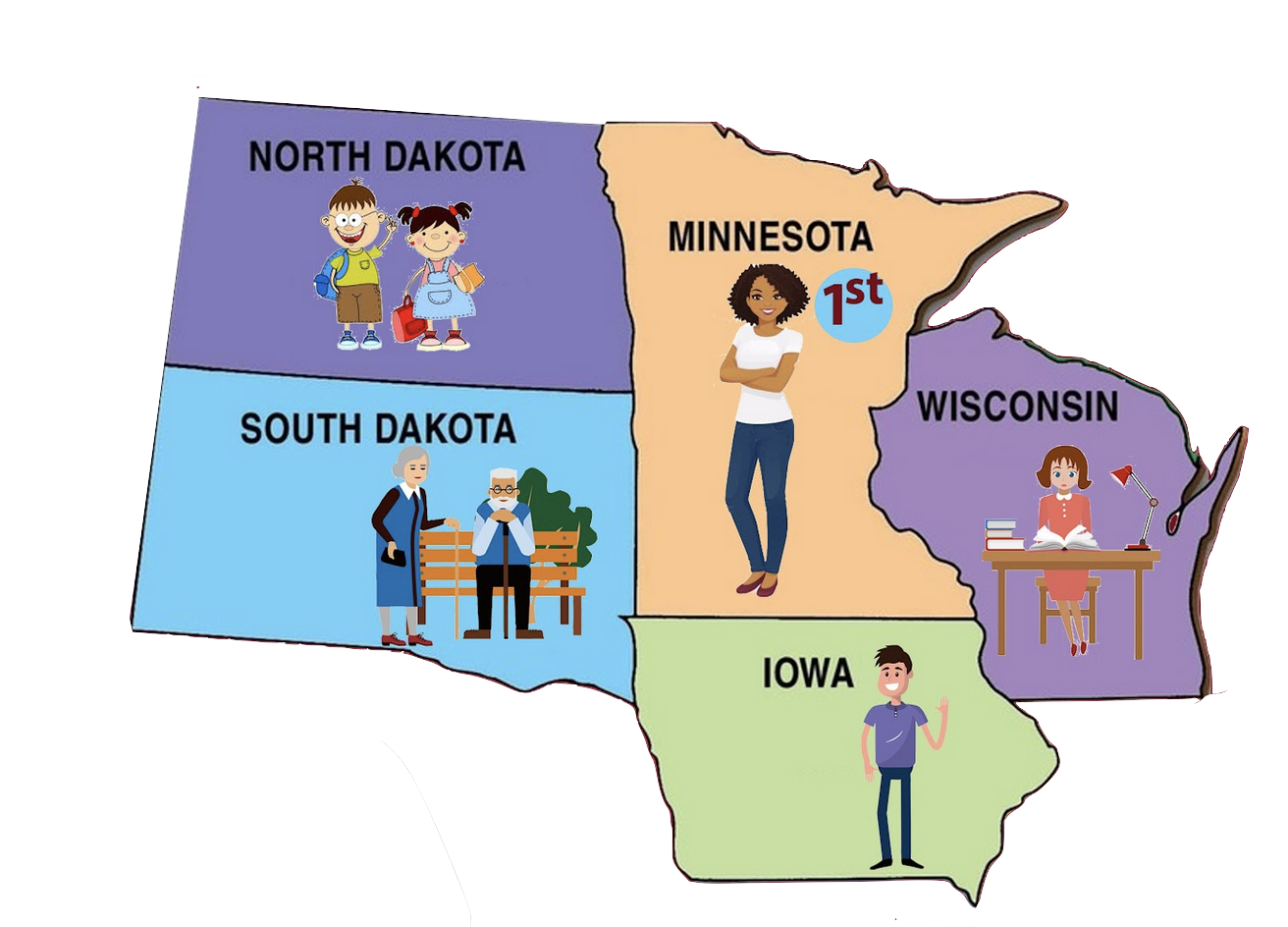The 10,000 Families Study
The 10,000 Families Study (10KFS) is a study about family health. The study invites families to participate with the purpose of understanding the influences of Genetics, lifestyle, and environment on health and illness over time. The study is focused on Minnesota, people from every part of the state, including its large rural and immigrant populations.
10KFS will help us understand health across the lifespan and transmission of risk and protective factors from one generation to another, as well as differences within families and across communities.
Who can be involved?
For a family to become part of the 10KFS study, one member of that family needs to take an eligibility survey first. That first member must live in Minnesota and be 18 years of age or older. Other family members, including those who live in neighboring states, can be invited by the first participant. All families are welcome! If you want to know if your family is eligible, please click here.
For more information about what you would need to do as a participant, please visit “What do I need to do?”
Links to Study website
For more information on
- The study overall: click on https://10kfs.umn.edu/
- Opportunities to partner with 10KFS: click on https://10kfs.umn.edu/become-a-partner






